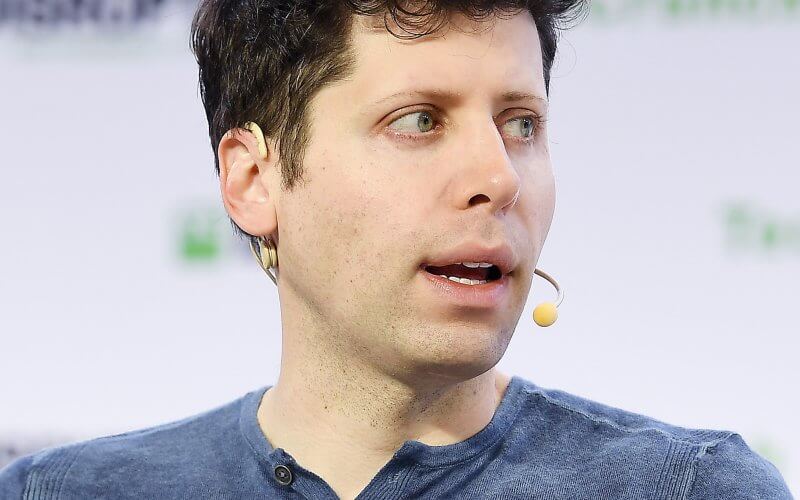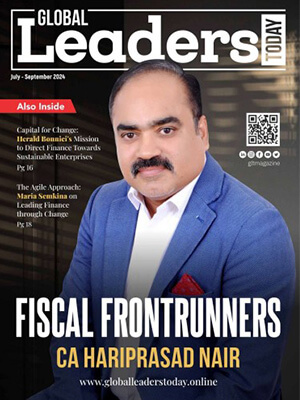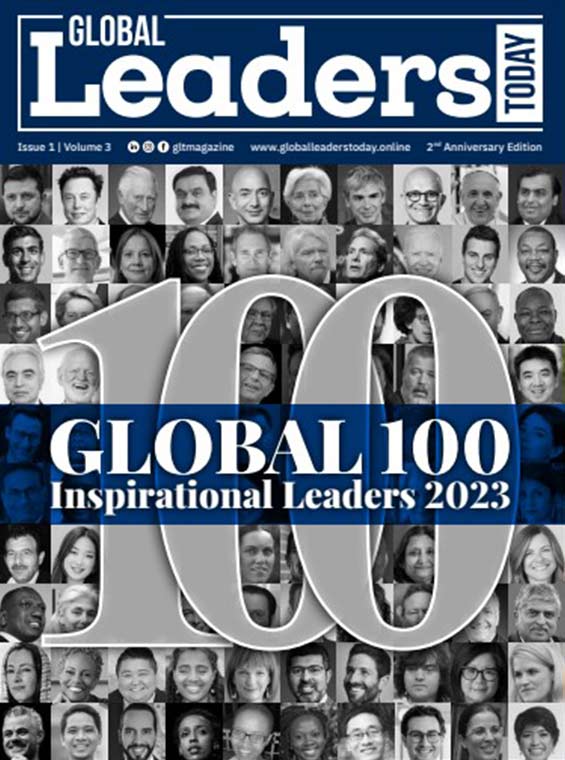Samuel Harris Altman is an accomplished entrepreneur, investor, and programmer with notable achievements in the tech industry. He co-founded Loopt and currently serves as OpenAI‘s CEO. Altman’s leadership extends to roles like Y Combinator’s former president and Reddit’s short-term CEO. His impact at OpenAI has propelled the organization into AI innovation. Beyond business, his writing on communication and success has left a substantial influence. Altman’s prowess in converting concepts to reality and his commitment to tech innovation make him a key figure in entrepreneurship and artificial intelligence.
Born in St. Louis, Missouri, Sam Altman’s early exposure to technology saw him master programming and deconstructing a Macintosh computer at the tender age of 8. This ignited a passion that would shape his future in unprecedented ways.
“I discovered that technology could be a pathway to self-discovery,” Altman candidly shares. This revelation crystallized during his formative years as he navigated the challenges of adolescence. At 16, Altman chose to come out to his parents, a decision amplified by the refuge technology offered him. “AOL chat rooms transformed my world,” he muses, reminiscing about his path toward self-acceptance.
His academic journey led him to the esteemed John Burroughs School, a bastion of education. He boldly addressed his sexual orientation to the entire school community. This act of courage resonated beyond himself, ushering in a new era of inclusivity and understanding.
Altman’s academic pursuits later intersected with entrepreneurship as he delved into computer science at Stanford University. Reflecting on how he entered the industry, he says, “I stumbled into it unintentionally. Initially, I went to college to become a computer programmer, certain that was my path. Starting college post the dot-com bubble’s burst meant startups weren’t in the limelight. As a freshman, I was surprised by the lack of excitement for startups, mentioning one earned chuckles. Initially, I wasn’t drawn to startups. During my freshman year, I researched in the Stanford CS department, which I enjoyed.” Altman continues, “From this stemmed a project, later evolving into Loopt. Y Combinator transformed it into a startup. We’d worked on it during the spring quarter, and despite having planned an internship at Goldman Sachs, the project was more enticing. Aware of Paul Graham, we noticed his call to forego mundane summer jobs for startup innovation. We applied and got funded, becoming YC’s inaugural investment. From there, it took off.”
In his capacity as CEO, Altman successfully secured over $30 million in venture capital funding for the company. Despite these substantial financial investments, Loopt encountered challenges in garnering a significant user base. Subsequently, in March 2012, the Green Dot Corporation acquired Loopt for a valuation of $43.4 million.
Hydrazine Capital emerged as Altman’s next venture, harnessing a $21 million fund. “You want to invest in messy, somewhat broken companies… hugely underpriced,” he remarks. Guided by this philosophy, Altman channeled 75% of the fund into Y Combinator’s innovative ventures. His sagacity also steered his brief stint at Reddit through a transformative Series B fundraising, unraveling a latent potential.
At 31, Altman’s entry into Y Combinator in 2011 marked the beginning of a transformative chapter. Initially, a part-time partner, his ascent to the presidency in 2014 marked a turning point for the accelerator. Under his leadership, Y Combinator’s valuation soared, boasting companies like Airbnb, Dropbox, Zenefits, and Stripe. Altman’s goal was ambitious: to fund 1,000 new companies annually while expanding the spectrum of startups to include “hard technology” ventures.
To further Y Combinator’s impact, Altman introduced YC Continuity, a $700 million equity fund for maturing YC companies, and Y Combinator Research, a nonprofit research lab. With a diverse research portfolio spanning basic income, future computing, education, and urban development, Altman solidified YC’s commitment to shaping the future. “Under Sam, the level of YC’s ambition has gone up 10x,” says Mark Andreessen, cofounder of Andreessen Horowitz.
Altman’s transition to a full-time focus on OpenAI as CEO marked a pivotal moment. Alongside influential figures like Elon Musk and Peter Thiel, Altman paved the way for OpenAI’s mission.
OpenAI was structured as a nonprofit organization committed to not being driven by the need to generate financial returns. This approach was meant to enable them to prioritize advancing digital intelligence for the benefit of humanity. Their focus was on conducting research transparently and in a manner that wasn’t constrained by traditional profit motives.
By raising $1 billion upon its 2015 launch, the company embarked on a journey to ensure AI’s development aligns with human well-being. He says, “What we have right now is just a small sampling of the AI we will build in 20 years.”
At the core of ChatGPT’s capabilities lies the engine known as GPT-4. Altman characterized GPT-4 as an “alien intelligence,” notable for its ability to craft coherent essays punctuated by short pauses that mimic real-time contemplation. GPT-4’s achievements have spanned a spectrum, from suggesting innovative cocktail recipes based on its flavor combination theories to generating college papers and even passing the Uniform Bar Exam. Its notable trait includes a willingness to acknowledge its errors with charm.
ChatGPT’s success surged remarkably, attracting an estimated 100 million monthly users within nine weeks after its release. This remarkable adoption rate spurred significant investments and research and development endeavors across major U.S. and China players. This wave of accelerated AI progress subsequently caused projections for achieving artificial general intelligence to converge closer to 2026.
Highlighting the importance of inclusivity in AI development, Altman says, “We think this is important. One example is that we worked with the government of Iceland, a language with fewer speakers than many of the languages well represented on the internet, to ensure that their language was included in our model. We think it’s crucial to include many languages and cultures to prevent AI from becoming too concentrated in a few languages and avoid bias and exclusion.”
He continues, “And I look forward to many similar partnerships with lower resource languages to get them into our models. GPT-4 is unlike our previous models, which were good at English and not very good at other languages. Now, [it’s] pretty good at many languages. You can go pretty far down the list ranked by number of speakers and still get good performance. But for these less spoken languages, we’re excited about custom partnerships to include that language into our model run.”
However, In November 2023, OpenAI experienced a period of upheaval, resulting in the sudden removal of Altman. The dispute, rooted in alleged communication issues, led to Altman’s dismissal by the Board and the subsequent resignation of Greg Brockman, the company’s president. Microsoft took the opportunity and swiftly recruited Altman and Brockman for an advanced AI research team, triggering an outcry among OpenAI’s employees, culminating in an ultimatum for board resignations or mass departures. In response, Altman was reinstated, prompting significant board reshuffling that ousted three members and brought in new figures from the technology and economics sectors.
In conclusion, Altman offers valuable advice for budding entrepreneurs: “The hard part of running a business is that there are a hundred things that you could be doing, and only five of those matter, and only one of them matters more than the rest of them combined. So figuring out there is a critical path to focus on and ignoring everything else is important.”








